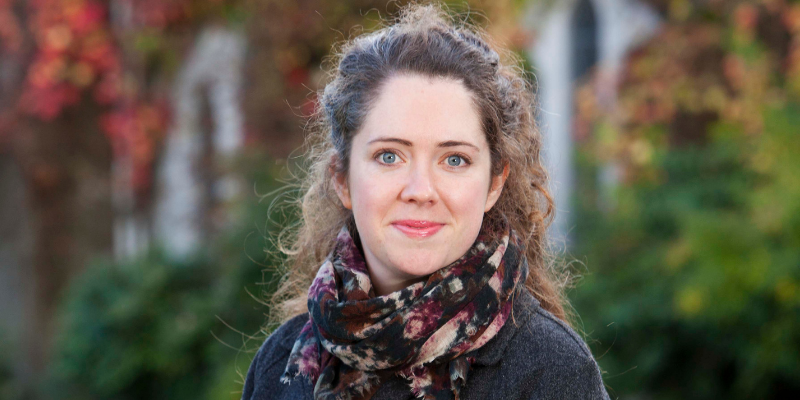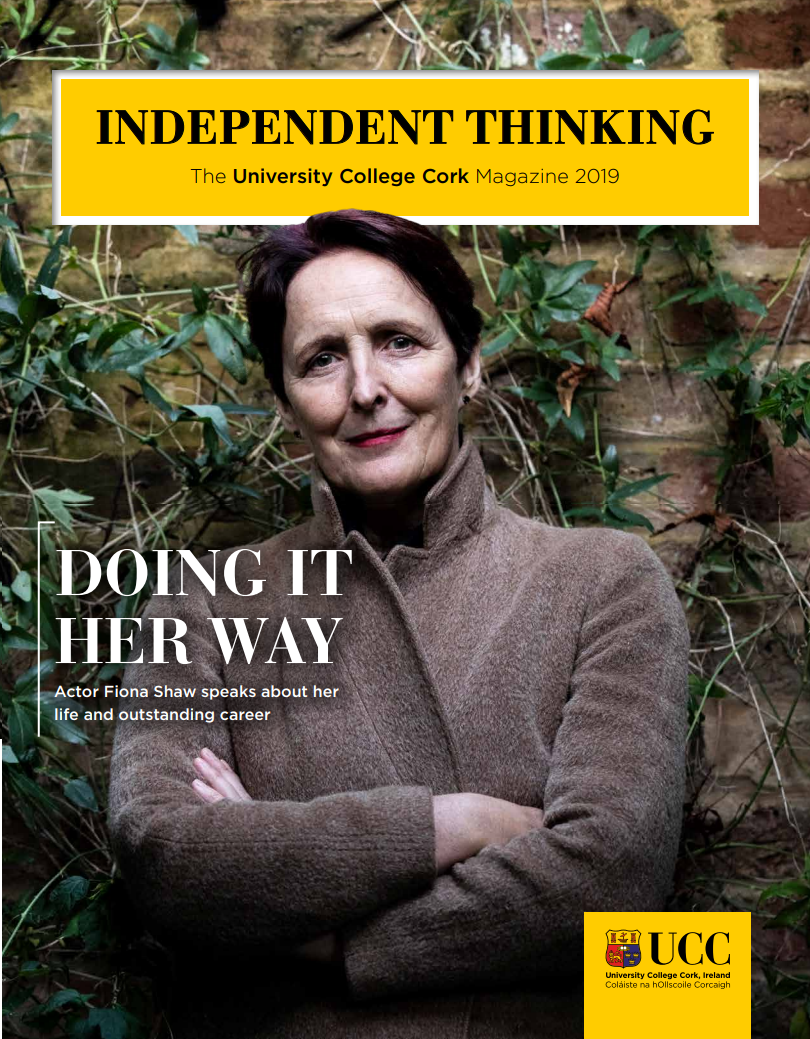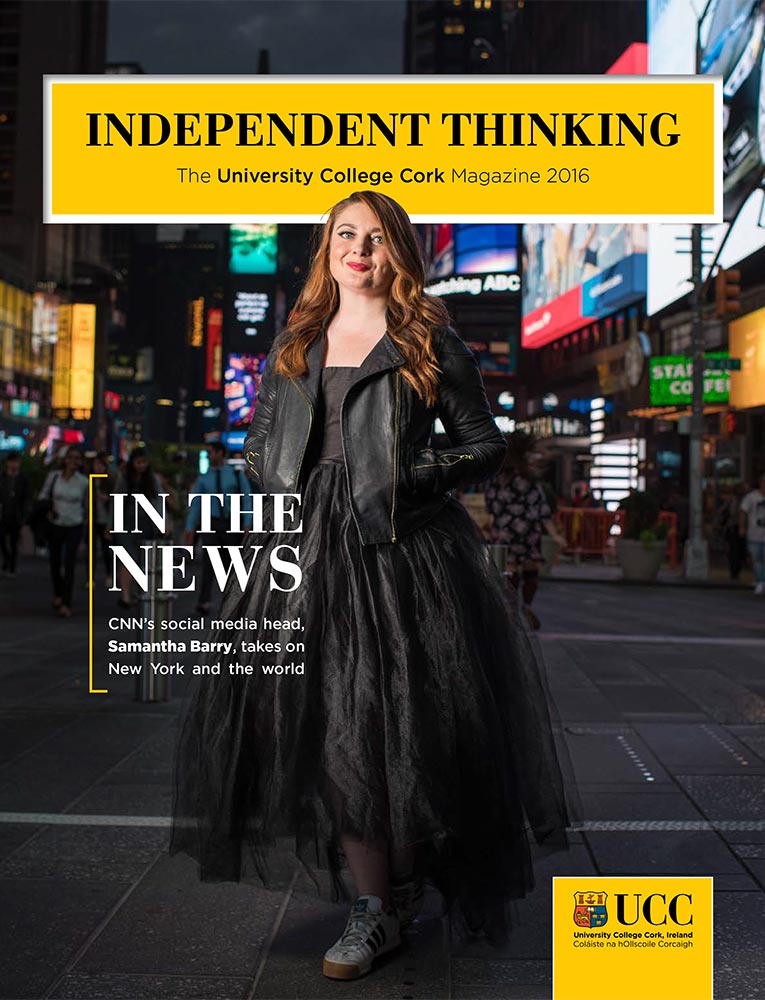Features
- Life beyond cancer
- Neil O'Leary, Chair of Cork University Foundation, on a successful career and what motivates him to support UCC today
- A point in time: coastal Atlas will serve as ‘a record for our grandchildren’
- Coming up for air: the sport of the novel for Eimear Ryan
- Sprinting forward
- A welcome return
- Time for positive change
- UCC students and alumni shine on the biggest sporting stage
- Adapting to the current
- It takes two
- Climate change requires transformative social action
- Bridging the gap
Climate change requires transformative social action
Dr Hannah Daly, Lecturer in Sustainable Energy Systems at UCC, outlines the “transformative action required” to effectively address climate change.
Climate change is a “code red” for humanity. This is not rhetoric, but a conclusion from the most in-depth scientific assessment in history, the Intergovernmental Panel on Climate Change’s (IPCC) Sixth Assessment Report. The world is at a precipice. We know the solutions, but we are collectively failing to act.
There is hope that a step-up in action will be brought about through COP26, an international gathering of climate negotiators that took place in Glasgow this November. There is still a window of opportunity to limit global warming to 1.5°C above pre-industrial levels, the goal of the 2015 Paris Agreement.
But, even if each country’s decarbonisation pledges were to be realised, the world would still warm by over 2°C before the end of the century.

Moreover, most emissions pledges are not backed up by concrete policies and plans. The International Energy Agency (IEA), has calculated that countries’ stated policies would warm the world by 2.6°C by 2100, which would be truly disastrous.
So, in the words of Laura Cozzi, the IEA’s Chief Energy Modeller, “we are not going to COP with the glass half empty; the glass is 80% empty”.
Many feel despair when faced with this stark reality, but the transformative action required can only take place by accepting this truth.
Policymakers set out a positive picture when talking about the transition required: clean energy jobs, warmer homes, healthier lives and restoring nature. Understandably, they need to get the electorate and businesses on board with the transition. Indeed, if done well, climate action will bring very many beneficial side-effects.
'The world is at a precipice. We know the solutions, but we are collectively failing to act' - Dr Hannah Daly
But meeting the goals of the Paris Agreement requires halving emissions this decade. This has never been achieved outside of times of economic collapse. Energy systems modelling we have undertaken in UCC indicates that clean energy technologies and fuels like electric vehicles and offshore wind electricity simply can’t scale up fast enough to deliver these savings while our energy demands and carbon-intensive agricultural practices grow.
It is still possible to limit global warming to safe levels, but transformative structural change and behaviour change will be necessary, along with developing a new energy system.
This is a difficult and uncomfortable message for politicians to deliver, but it is an honest one, and missing from our current climate action strategy.
Our response to the COVID-19 pandemic showed that we can collectively rise to tackle a crisis under strong leadership. The factors necessary for a strong societal response to climate change are similar: that we accept the gravity of the problem; that policy and scientific processes are trustworthy and transparent; and that society comes together to act in the common good, even when it requires painful decisions.
-1.png)
Firstly, the public must understand how serious the threat of climate change is. It is no longer a problem for the future: fires, floods, droughts, and ice melt this summer have given us a hint of catastrophes to come, and it is only a matter of time before we feel this closer to home. 2021, a year marked by heatwaves and forest fires, is likely to be one of the coolest years of the twenty-first century. Young people understand this very clearly, and they feel afraid. It is the moral duty of the older generation to face this reality in solidarity with the youth, who will feel the worst impacts and shoulder the greatest effort in mitigating climate change.
Secondly, the COVID-19 pandemic demonstrated how policymakers can work with scientists closely and transparently, and communicate messages honestly to the public. Scientists should take a prominent role in communicating both the causes of, and the solutions to, climate change to policymakers and the public.
Thirdly, people will not come together to act on climate change unless the solutions are fair. This means that every sector should share a burden of effort proportional to their climate impact. In Ireland, this requires diversifying our agricultural activity away from beef and dairy production, which are highly carbon intensive: farmers must be supported in this transition. The distributional impacts are also key: it is not reasonable for the public to subsidise luxury electric vehicles while making petrol prohibitively expensive for people who can’t afford or access low-carbon transport. A major shift to affordable public transport and attractive walking and cycling infrastructure is a highly equitable solution for decarbonising transport.
In Ireland, we will soon adopt binding carbon budgets to set us on a sustainable path. In 2021, we are already in the first carbon budget period, which is the maximum allowable greenhouse gas emissions between 2021 and 2025. Every tonne of carbon released by a sector, business or household takes from the collective budget we have set ourselves, so early action is paramount.
The only cure for despair when faced with the stark reality of climate change is action.
Visit Hannah Daly's website and UCC's Environmental Research Intitute (ERI) website for further information.
Photography: Diane Cusack



